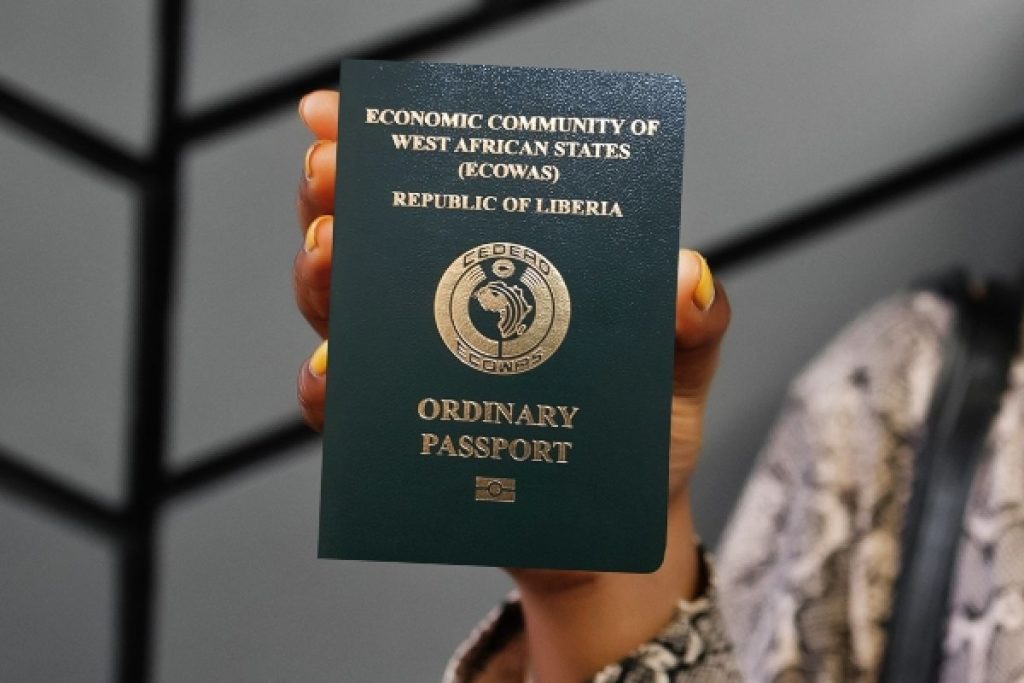The country’s Nigeria-born anti-corruption head has been forced to quit after allegedly faking his own ID. By Jonathan Paye-Layleh in Monrovia.
Liberia’s strict immigration laws have come under scrutiny, after the head of the country’s Anti-Corruption Commission was forced to quit after allegedly falsifying his Liberian citizenship. The West African republic has a number of regressive citizenship laws, which prohibit dual nationality, ban anyone who is not of ‘negro’ descent from Liberian nationality, and make it illegal for non-nationals to hold senior civil service jobs. While the laws have been repeatedly denounced by President George Weah, the president was forced to accept the resignation of Nigeria-born Austin Ndubusi Nwabudike over allegations regarding his immigration status. Born in Nigeria’s Delta State, the former lawyer practised with the Liberia National Bar Association, something non-Liberians are prohibited from doing, before being promoted to various high-ranking positions following the 2017 election of the footballer-turned-politician George Weah. The charismatic barrister, who claimed to have been naturalised as a Liberian in the 1980s, was appointed by Weah to head the Governance Commission, a key role tasked with maintaining stability in the country, which suffered a genocidal civil war between 1989 and 2003. After more than two years at the Governance Commission, Weah appointed Nwabudike chairman of the Liberian Anti-Corruption Commission in October 2019. Weah’s promotion of the Nigeria-born lawyer caused unease within the cabinet. However, Nwabudike would probably still be at the helms of the Anti-Corruption Commission had the president not given him a new – and more politically sensitive – position as chair of the National Elections Commission ahead of crucial mid-term senatorial elections. It was during Nwabudike’s appearance before a senate committee to confirm this new role that he failed to prove he was a naturalised Liberian. He compounded the confusion by presenting five different dates of birth, according to senators and members of the country’s association of lawyers. President Weah, who was facing public criticism for choosing a foreign-born lawyer for a top position, yielded to pressure and withdrew Nwabudike’s nomination. He, however, retained him as head of the anti-graft body. Sensing blood, civil society groups mounted fresh pressure for the removal of Nwabudike from the Anti-Corruption Commission, while the National Bar Association announced Nwabudike’s expulsion, from the legal fraternity, citing: ‘The doubt raised by the Senate over the citizenship of Counsellor Nwabudike.’
A statement by the lawyers added that the allegations against Nwabudike ‘cast a very dark cloud over the integrity and credibility of the Liberian National Bar Association and the Judiciary’. Its Grievance and Ethics Committee found out from court records that a ‘purported certificate of naturalisation presented to the Liberian Senate by Councillor Nwabudike showed that he was issued by Criminal Court “B” at the Temple of Justice on May 13, 1982, when in fact that court was called the People’s Criminal Court “B” [at the time].’
The statement added that Nwabudike’s various passports showed five different, and conflicting dates for his birth, while the name on his passports was slightly different to the name given to them. The Bar Association also revealed that the date of birth on Nwabudike’s Liberian ID card was different to the date given on his handwritten wedding certificate – with a different day and different year cited – and that he recorded his citizenship as ‘Nigerian’ on the marriage certificate, despite allegedly being a naturalised Liberian for almost a decade at that point. Under pressure, Nwabudike submitted his resignation letter to President Weah, stating: ‘The monumental progress made by the government in the fight against corruption, both in the public and private sectors, is being marred by public debate of my person rather than what contribution I can make towards the economic development of our country. It does not serve the overall strategic interest of your government and our people if I were to constitute a distraction from the national agenda.’
Since being forced to resign on February 26, Nwabudike has refrained from media comments. However, he denies any wrongdoing. Some supporters of the ruling party claim the campaign against Nwabudike runs contrary to the purpose for which Liberia came into being – as a place of freedom and opportunity for black people and Africans. But opposition supporters believe the Nwabudike affair highlights the problem with corruption in the country.
‘That a man would fake all legal documents to end up chairing the Anti-Corruption Commission is in itself corruption,’ remarked a government critic on a radio programme. Outspoken opposition leader Simeon Freeman has called for the prosecution of Nwabudike, arguing that President Weah failed to do due diligence before elevating a man who had only claimed he was a Liberian.


